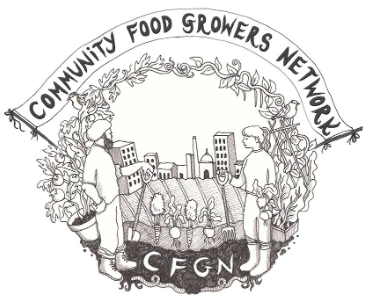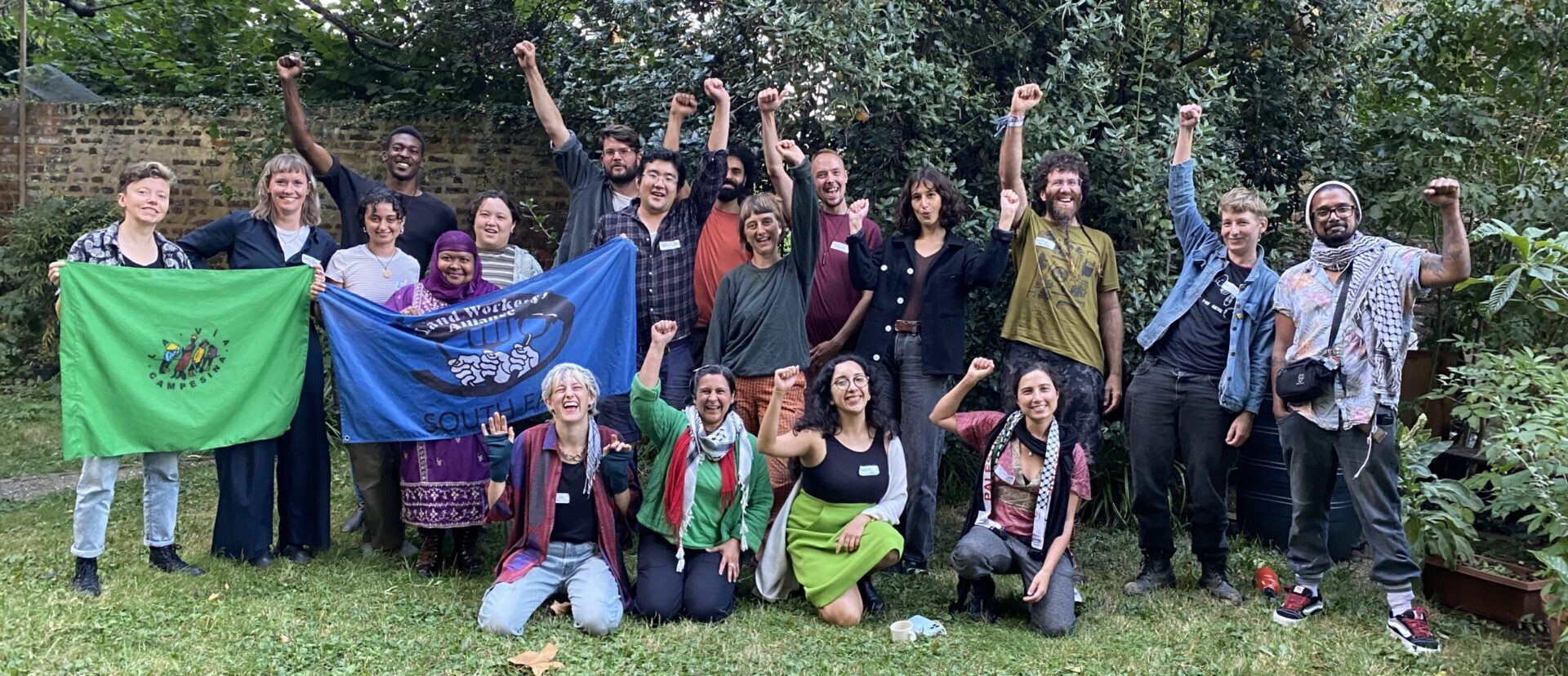Why we can’t afford to lose the plot: Land, Labour and connectedness in Britain
Poverty has not always been a scourge upon humanity or even been represented as such. Originally, being poor was a blessed state of being associated with virtuosity, as in ‘blessed are the meek’. The poor, it was said, would inherit the earth.
Beyond the religious reformations, the protestant church played an increasingly greater role in defining structures of governance and law and the economy. Poverty became redefined, especially under Calvinism, as equivalent to a status of the lowest form of servitude, deserving of assistance only if physically handicapped, or through no clear fault of their own. Economic thriving became equivalent to being virtuous and it bestowed upon one a natural position to take charge of the lesser blest and to put it to work. This was understood as predestination and was a key part of the Calvinist belief system which assured the population that social advantage was a gift bestowed upon a select from God, and the absence of wealth meant that the reverse was also true:
‘Christians are to respect civil government as society’s and the church’s protector, and we should obey civil authorities even when they are unjust.’ Calvinist quote
The scientific thinking which grew out of this and related moral positions was that which underpinned the colonial adventurism and thus the imperial system which exploited land and labour and then seed and sovereignty across the globe.
This ‘science’ was based upon ideas of exclusive differentiation and a predetermination of the nature of beings. Knowledge became something only to be acquired rationalistically and empiricism was the basis of the facts which were generated. Facts were deemed scientific ‘truths’, falsifiable, but yet validated by cliques of ‘scientists’ who were predominantly male, always white and of European descent. Such folk were felt to possess the authority of auditors who used peer review, and the tools of their own invoked privilege, though absolutely blindfolded by their self-congratulatory sense of rightness, they sallied forth, unchallenged. Fortified by the gains of capitalistic endeavour on the high seas, this science redeemed itself in its own eyes as unconquerable.
However, I am getting ahead of the narrative…
In Britain of the middle ages, the control of resources: land, labour and materials, for example sheep and their wool or women’s hand woven lace benefitted those privileged enough to own significant quantities of these and who were well positioned, such as landed gentry, to acquire more. It came to be considered natural and inevitable that surplus profit was as a God given right.
How could this be possible in the face of the grim hardships faced by the masses of poor? Serfs had recently become landless, set adrift by the growing enclosures of land and with the removal of the yoke of Catholicism in Britain there was a loss of monasteries and churches, which provided for the very poor and ‘impotent’, which deepened impoverishment. Added to their numbers were thousands of monks, now homeless who were forced to join the ranks of the poor.
It became necessary for governing nobility to intercede and proclaim the first Poor Law in 1388 which located the responsibility for relieving those estranged by enclosures upon each parish. This act came on the back of knowing that the labouring class, whether released from war or from farm drudgery could organise and threaten the accumulated wealth and status of the privileged, if they were not, somehow kept subdued either by civil responsibilities or by being forced to meet their basic needs and those of their betters.
This act also introduced the first criminalisation of the impoverished of the land who sought justice: those who migrated from their places of origin could be brought to the law and punished. The 1496 amendment to the Poor Law instituted serious punishments to those who were now referred to as vagabonds or ‘idle poor’.
These attitudes paralleled the prison system of the colonial tropical plantations where it was also necessary to manage labour not only through control of movement but by using the prison as a form of valve, enabling the unchained labour therein to be freely available to pick up the slack of plantation labour requirements by creating a stock of captured labour available for free use as punishment.
The association of farm work with drudgery, producing cheap labour who could be used by the gentry and who were vulnerable to either organisational or much later technological change became a key feature of lands regarded as rural across the growing empire and it also translated into how labour was controlled industrially in the areas which became sites of urban (under)development.
The value of labour and its treatment differed only by degree and circumstance as plantation agriculture and the numbers available grew in the tropical colonies whilst enclosures of land continued apace in Britain. There were also crossovers and exchanges: overcrowded prisons and the absence of a commitment to discharge parish obligations meant many poor were either press-ganged into forced ship’s labour or sent for punitive sentences to Australasia or the Caribbean territories. In this way, those identified as poor, idle, vagabond or deserving capture were able to be brought into play in the early stages of the great colonial pre-industrialisation production system.
Those who were not sent abroad found themselves relocated to the northern territories within Britain where the processing of cotton and other imperial commodities were to take place. They faced either that, or to work in ship-building or other associated trades. Many were conscripted into the Navy’s many imperial battles, or found themselves joining crews of brigands or buccaneers, intercepting and undermining Caribbean sugar, rum or mahogany profits.
Thus was the labour of both Africa and Britain, which serviced the wealth accrual of the landed gentry, first brought together in common suffering as mere factors of production.
The poor law of 1547 stated:
‘that if any man or woman should refuse to labour, and live idly for three days, that he, or she, should be branded with a red hot iron on the breast with the letter V, and should be adjudged the slaves, for three years, of any person who should inform against the said idler.’
It went on threatening a further branding on the cheek, beating and chaining and a diet of bread, water and ‘refuse meat’, such as the master should think proper.
Such conditions were not much different to those obtained in Barbados, for example, as a sugar colony, at a similar period, and which were experienced by Irish and African alike. The key difference in it was that the African was also subject, as servitude continued, to the warped logic of a science which determined that her condition was inevitable on account of her physical characteristics. As such it would take another 500 years before any African would feel able to renounce such a claim.
In the structures and systems of our social frameworks, such pseudoscience remains embedded, surreptitious and influential. Despite a number of acts to regulate its impact, it lives on regardless, shaping how migrants are perceived and received, ironically, often to work in farms which have been abandoned by those seeking to migrate to the cities. The irony is such that some of those abandoning the rural areas will even end up running or working on city food growing projects!
Given such histories, how can projects, which may operate out of a legacy of seeking to extend charity to the poor, meet these same poor on their own terms?
Old and new migrants alike may well be hostage to similar factors of exclusion and institutionalised ways of operating which do not sufficiently join the dots or include their histories of displacement, different knowledges and experiences with the land and economic power.
More importantly, do those who administer the projects, initiatives and activism begin to make the necessary links between shared histories of oppression and privilege such that potentially transformational reconciliations have a chance of taking place, or at very least people have an opportunity for their own hidden stories to become acknowledged?
How might we systemically begin to deal with our own complicity in maintaining structures which continue to remain unhearing, unseeing, and insensitive to nuances of sameness and difference?
“Deprivation of the ability to provide for one’s own needs and those of others is a characteristic of this poverty; people handicapped by social, not existential disability. If people live off the dregs of the consumer market, this is because they are also the dregs of a labour market, descendants of those wounded by the injuries of industrialisation, urbanisation, slavery, imperialism and the remaking of the old rural sensibility in the shape of industrialised humanity. We should not imagine such traumas cease to work their evil, simply because those who were never victims of them prefer to forget. The inheritors of loss perpetuate that legacy, which survives the most dramatic periods of change and prosperity.”
J.Seabrook, Pauperland
It was not until the threatened loss of an allotment space in the heartland of a UKIP admiring, Brexit voting polity that I recognised, for myself, how symbolic that loss would be. Not simply for the black and female grower that I am and represent. Nor for the sake of preserving a claim with an identity or even the twinned identities of ‘minority ethnic female’, though this too would have its validity. More importantly it was because I recognised and could empathise how it was the authorities could neither hear, nor understand the way in which this loss replicated the more general disenfranchisement that many of its own ‘poor’ were still experiencing as a result of a many centuries old erasure of their connection with the land and agency in their own lives.
More critically, I felt and understood how tied up my own life and reclamation of it was and is with theirs, as each moment spent within the allotment space is a recovery, a critical healing, a reconnection to the general sense of land, as connected earth, similarly lost to my ancestors and the associated loss of agency experienced.
The allotment produces to supply a local food bank and to encourage its users to reacquaint themselves with nature and to produce food from their own, direct intervention, rather than through total reliance upon the too-many-supermarkets retailing in the locality. It is also an opportunity to make connections and to challenge the narratives of ‘food poverty’ received wisdom fed to us by those who have no first-hand experience of it.
I welcome you, reader, to join me in rekindling some energy and enthusiasm after a hiatus. It’s a road less travelled, yet the rewards and satisfactions to be had are great, as I have shared. It is part of a larger Food Justice agenda, which involves re-imagining a broader food system that takes everyone into account, everyone and their histories, connected histories, shared histories, histories which cast a shadow on all our claims of visionary emancipation from the industrial food system. We can share and exchange meaningful work which has potential to all the better liberate ourselves from others’ over-arching stories which don’t tell our truths quite like they actually are. We can work and learn together from the possibilities that really exist between us to achieve truly transformational change.
Mama D, October, 2017

